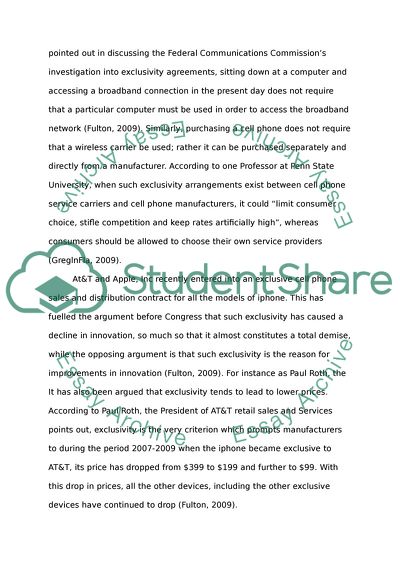Cite this document
(FCC Regulation of Exclusivity Agreements Term Paper, n.d.)
FCC Regulation of Exclusivity Agreements Term Paper. Retrieved from https://studentshare.org/macro-microeconomics/1734766-what-is-the-federal-communications-commissions-and-governments-role-in-the-regulation-of-cell-phone-exclusivity-agreements-between-cell-phone-service-carriers-and-cell-phone-manufacturers
FCC Regulation of Exclusivity Agreements Term Paper. Retrieved from https://studentshare.org/macro-microeconomics/1734766-what-is-the-federal-communications-commissions-and-governments-role-in-the-regulation-of-cell-phone-exclusivity-agreements-between-cell-phone-service-carriers-and-cell-phone-manufacturers
(FCC Regulation of Exclusivity Agreements Term Paper)
FCC Regulation of Exclusivity Agreements Term Paper. https://studentshare.org/macro-microeconomics/1734766-what-is-the-federal-communications-commissions-and-governments-role-in-the-regulation-of-cell-phone-exclusivity-agreements-between-cell-phone-service-carriers-and-cell-phone-manufacturers.
FCC Regulation of Exclusivity Agreements Term Paper. https://studentshare.org/macro-microeconomics/1734766-what-is-the-federal-communications-commissions-and-governments-role-in-the-regulation-of-cell-phone-exclusivity-agreements-between-cell-phone-service-carriers-and-cell-phone-manufacturers.
“FCC Regulation of Exclusivity Agreements Term Paper”, n.d. https://studentshare.org/macro-microeconomics/1734766-what-is-the-federal-communications-commissions-and-governments-role-in-the-regulation-of-cell-phone-exclusivity-agreements-between-cell-phone-service-carriers-and-cell-phone-manufacturers.


